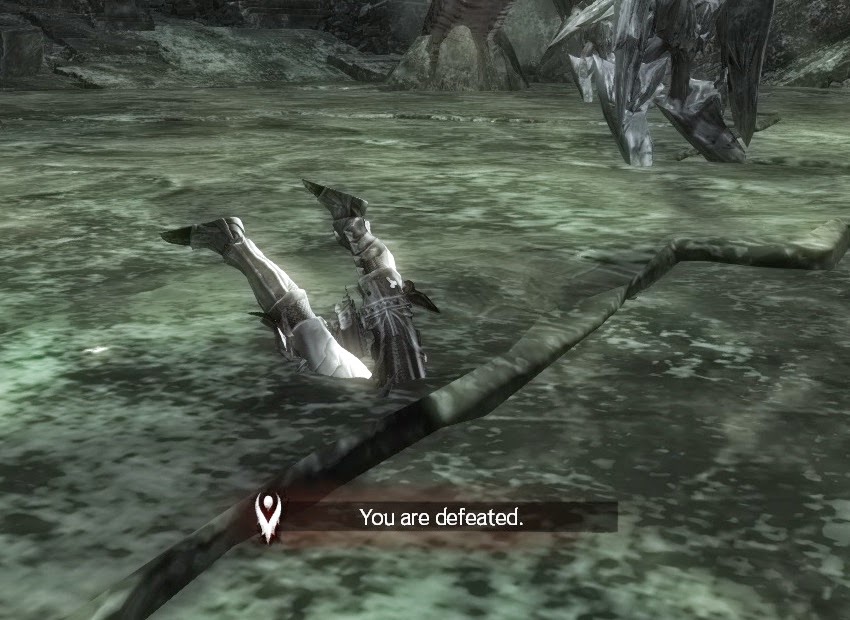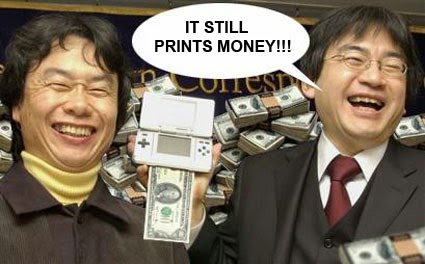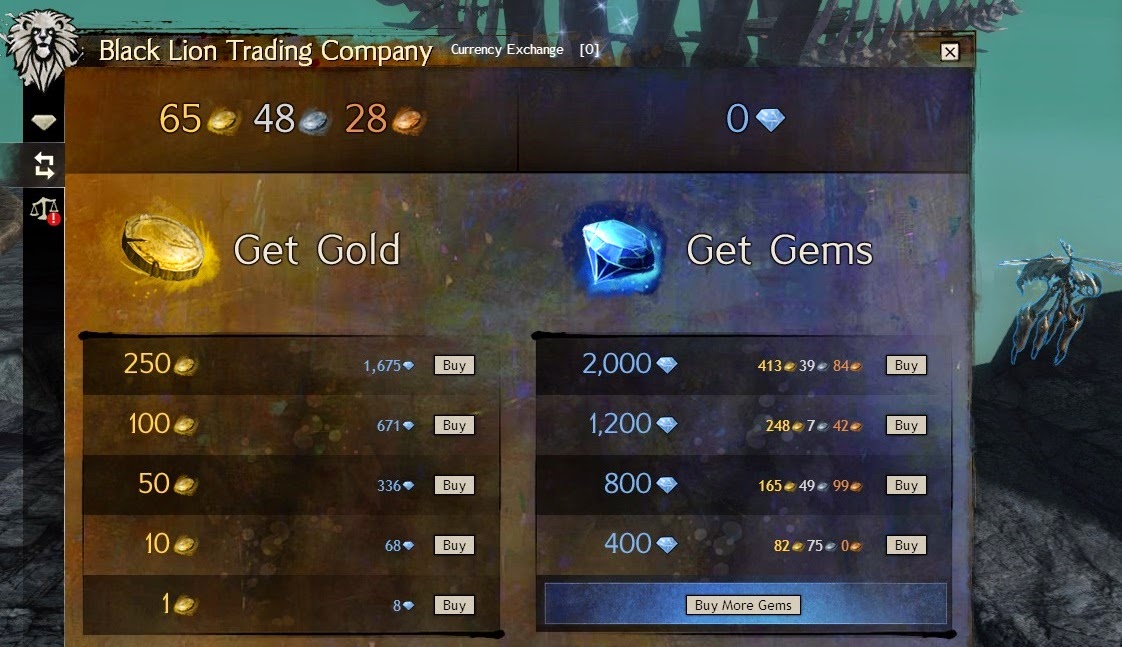 |
| Say hello to Sir Lindbot. |
Disclaimer: I am by no means an expert (or even a student) of economics. Real world cash flows are much more complex, than they are in most games, so apologies in advance if some of you might feel my knowledge is lacking slightly. I just know things on an as-needed basis. Also here's some music to cue in the background:
To understand this properly, we first need to know what money really is. I mean, we've all had money before - hopefully we all still have - we know how to spend it. But what exactly is money? Let's look at where it started:
Once upon a time, we didn't have any form of "cash" on our planet. We only had physical items. If you wanted something, you'd have to trade something else for it, something tangible, like a cow for a bowl of soup - which sounds like a horrible deal, by the way, I'd try to barter that up to at least two bowls of soup. But then a clever fellow decided to ruin everything, by letting people trade in their gold, for "IOU" notes. In other words, little pieces of paper that were a symbolic representation of value, but had no inherent value themselves.
 |
| All this? Sluuuuurp nomnom. Nothing. |
These little pieces of paper, were the first "prototypes" of money. You couldn't eat them or use them for medicine, but you knew you could always trade them in for gold, so that gave them value. This all worked, because of the trade-in promise that was tied to each note, a guarantee of gold. In other words; money is a promise of eventual value, which is worth nothing if you never spend it (with emphasis on "if" and "never").
That's the info we need! Money is a symbolic representation, of promised value to its holders. This is true both in "real life" and in video games. A currency in a game, is only worth something, if it can be exchanged for something that has value, in the context of the game. If nothing in your game makes sense to buy, your currency has no value.
But where does money come from?
 |
| Nintendo, of course! |
In real life, we just print it. Which can be a problem sometimes, because printing too much, will cause what we call inflation: Your money becomes worth less and less, so you need more and more of it to buy what you did before. In real life, it happens for a number of reasons, which would require me to fill out an entire post, all dedicated to that topic on its own. So I'll instead try to summarize it with a simpler explanation, which can be used in the context of games:
As mentioned above, money is the symbolic representation, of promised value. But the promised value, is limited to the world's resources. You can't buy more stuff, than what exists in the world. Ergo, it can only be worth as much, as what exists within our reach. In smaller environments like video games, this becomes much clearer. It forces the economy to re-calibrate itself, making the prices on everything go up. Of course, "go up" is meant entirely in relation to the amount of cash needed, since people will - now that more money is in circulation - have more cash at hand.
The problem in video games, however, is that everything is designed around some set prices on release. You want to keep your game's currencies from inflating, because it might very well break the game's mechanics, landing you in the virtual equivalent of Wall Street. The people who were there first, can ride the wave upwards, while the item- and money-drops from the game's enemies, means less and less, because their value is dropping, in relation to the user-driven auction house.
The prices on the player-driven marketplace, can become so different from the NPC vendors, that you'd think only gods could afford any of that. So if start a new account, a while after serious inflation occurs, you'll risk landing some big issues when it comes to earning gold.
 |
| Just outside of your god damn reach. |
In Guild Wars 2, the "money-printing" occurs whenever someone slays an enemy or completes a task, which gives them money out of thin air. This money, just like in real life, is injected into the system. But as with what I mentioned above, it will still only be worth as much, as the total sum of items that exists in the game-world.
To correct this, it is necessary to implement systems, that takes money back out of the system again. I have no idea how it works in real life, but in games, we can actually put money back into the system, effectively "deleting" currency. Guild Wars 2 takes a number of measures to fix this, some better than others, but here's the most notable ones:
Non-player vendors: Unlike the auction house, where the money goes to another player, the NPC-vendors just suck money back out of the system. If you buy something from an NPC, the coins you pay, simply disappear. Arguably, however, while GW2 has a lot of vendors, I don't know how much cash they manage to remove through them. This is thanks to a clashing design-philosophy, where the best items in the game, are only attainable through players creating them. Mind you, I love this idea, but that means buying "power" from vendors - especially speaking for the end-game users who have the most cash - is not really a thing. We need to consider how else we can make vendors attractive, to those users.
 |
| For all your environmentally destructive needs. |
Salvaging and crafting: I am now going to correct myself, as there actually is a pretty good reason for endgame users, to buy things from the vendors. Or at least one particular item: Salvage kits. You can tear equipment apart, using salvage kits, for a chance to get something awesome. But you need salvage kits to do that, which can only be bought from NPC-vendors. When you salvage equipment, there's a chance you get some of the components it is made out of. But often only a fraction of what it would take to re-craft it.
 |
| Lego meets rocket science. |
Now, salvaging is only really important, because of the crafting system. If we couldn't craft items, there would be no reason for us to pick our items apart, trying to get crafting materials. As a matter of fact, you almost never get an item's full worth back in materials, so we would instead be directly discouraged from doing that, as we would gain nothing, could we only sell the materials. But that's the beauty of it; we're willingly decreasing the value of our items, for the sake of personal progress. This is all thanks to the system that ensures, that the best items in the game, can only be acquired through crafting.
 |
| Thermocatalytic reagents? Only at best-buy! |
As a minor addition, there are several different crafting professions, but you can only have two active at a time. The higher your proficiency in a discipline is, the more expensive it will be to swap back to it. The cost isn't enormous, even when you've maxed out a discipline, but it's significant enough to take out a good chunk of the gold in circulation, collectively.
The gem store and the currency exchange: Usually when people hear the word "micro-transaction," they shudder and walk away. However, here's a rare instance of it actually being done properly. I won't go into detail with what exactly can be bought there, but its content is largely cosmetic, plus utilitarian upgrades like extra character slots, bigger inventory etc.
 |
| Prices clearly don't add up. Oh and that's my pet, Nutbugger. |
The ingame store, uses a currency called gems. These gems can either be bought with real-world money, or they can be purchased with ingame gold, through the currency exchange. This means that the store items are not exclusive to customers paying real money, it's just more easily acquired that way. But the real genius about the exchange system, is that there is a declining exchange rate. Let me elaborate quite simply:
You buy gems for gold, then sell the gems again, you end up with less gold than what you started with. The price for gems, as well as the rate of decline, is determined by supply and demand.
 |
| Yo dawg, I heard you like quiznos. Go eat a turd. |
That means, whenever someone buys gems for gold, they're emptying a huge pile of gold, out of the system. What's even better is when they actually buy items for the gems, because that effectively translates into a really expensive NPC vendor purchase. And since it's so expensive in gold, mostly only endgame users do it, which helps a lot in stabilizing the economy. Fucking brilliant.
One might argue that it's a risk, essentially letting people buy stuff with their in-game currency, instead of forcing them to pay real money. But the opposite seems to apply, thanks to this system on non-exclusivity, where everyone becomes more invested in their characters, because "no one is above" thanks to real life advantages (aka some having more money than others). There are a lot of people who buy the gems for real cash, it's the whole reason the game still runs.
 |
| Shame we can't pay in Yao-mings. |
Edit: The version of the currency exchange, that I have used as a reference image here in the article, is the new version, with fixed amounts. You used to be able to choose exactly how much gold you'd spend, or how many gems you wanted to sell. I loved the old version, not this one at all. The players are, understandably, quite outraged by these changes.
Arenanet has commented, that it is to make it more accessible to new players. But if you look at the numbers in the image I posted, you'll see that the minimum amount is over 82 gold. If you have that to spare, you are no longer qualified as a "new player" in my book.
Transportation: This is something that is very commonly seen in MMOs, which is to charge a fee for instantly moving the player from point A to point B. Point B is typically a waypoint, in a fixed place on the map. The amounts charged are usually not much, but the prices tend to scale with player level (they do in Guild Wars 2) and distance travelled. It's the amount of money they can take in collectively, however, that really means something.
_____________________________________Transportation: This is something that is very commonly seen in MMOs, which is to charge a fee for instantly moving the player from point A to point B. Point B is typically a waypoint, in a fixed place on the map. The amounts charged are usually not much, but the prices tend to scale with player level (they do in Guild Wars 2) and distance travelled. It's the amount of money they can take in collectively, however, that really means something.
So what are your thoughts on these solutions? Playing any games that use similar methods, when it comes to deflation, or do you have any creative ideas for alternative methods? It seems that making items with NPC-exclusivity is the way to go, but I'd love to hear if you know of any alternatives.
